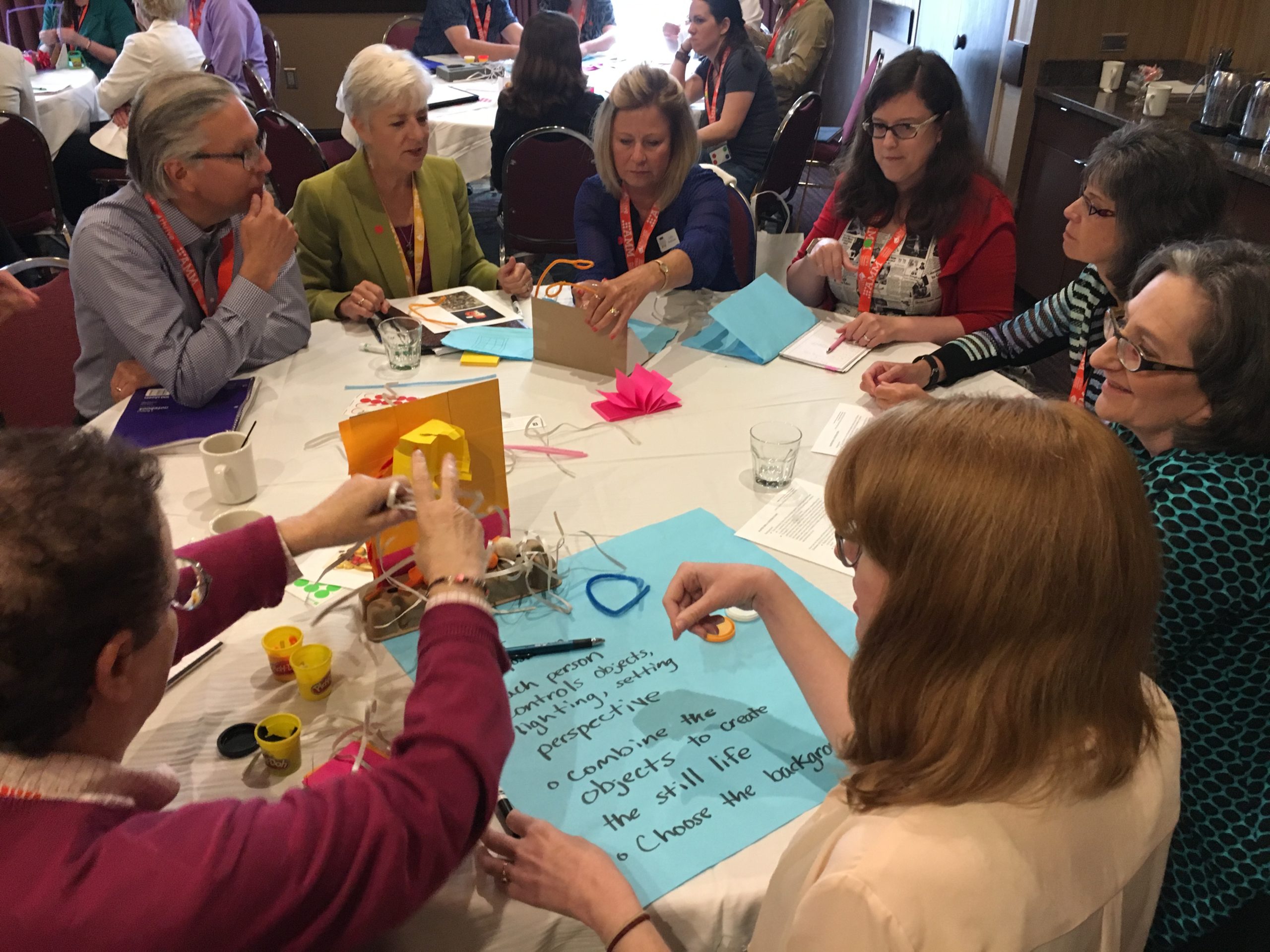About the Series
Managing and developing exhibits and other programs is an iterative, creative process. Communication, collaboration and problem-solving are essential to team effectiveness in such a process, particularly when team members represent a range of disciplines, talents, skill-levels and work styles. The Creative Ways to Move Ideas Forward in Experience Projects workshop series and seminars were developed by experienced museum professionals Charity M. Counts, XG Exhibits founder, and award-winning exhibit developer Tricia O’Connor, owner of Water’s Edge Consulting. The goal of these educational sessions is to support individuals who have a range of experience with exhibit projects as they seek to become more effective project leaders and exhibit developers.

